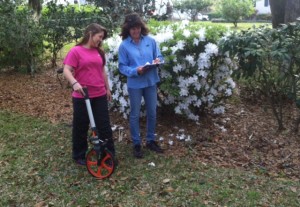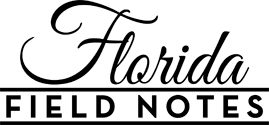The next time you buy a case of bottled water, open up half of it and pour it out onto your lawn. If that seems like a waste, it’s what the experts say we Floridians do all the time. From JEA to the St. Johns River Water Management District (SJRWMD) to the University of Florida Extension Service (UF IFAS), all warn that we are using 50% of our fresh drinking water to irrigate our lawns.
And now that the water management district projects that we are reaching our limit for groundwater pumping, all are united in the same message: wise watering and reducing fertilizer runoff are more important than ever.
The SJRWMD has established irrigation limits, adopted by the City of Jacksonville. Under the federal Clean Air Act, the city is also required to establish fertilizer ordinances, which cities around the state have been doing. Both SJRWMD and the city refer to UF IFAS for best fertilizer practices.
Below are quick guides to post and refer to throughout the growing season.
Irrigation
- City irrigation ordinances changed with Daylight Savings Time. From March to November the following rules apply:

JEA provides a free sprinkler system consultation. Representatives will check each zone for operation and timing, and will reset the system for you. Photo: Lisa Grubba - No watering between the hours of 10 a.m. and 4 p.m.
- Odd number addresses, no address, or those ending N – Z: Wednesday and Saturday.
- Even number addresses or those ending A – M: Thursday and Sunday.
- Non-residential addresses: Tuesday and Friday.
- Apply ½# or less per cycle, but not more than one hour per zone (SJRWMD).
- Exceptions: hand-held watering devices, micro-watering devices, establishing new landscaping, after fertilizing, or system maintenance and repair.
- The ordinance applies to all water sources, including private wells, but not golf courses, agricultural crops, nurseries, athletic fields, or other intensive recreational areas.
Fertilizing
The numbers on the front of the fertilizer package refer to the percentages of nitrogen, phosphorous and potassium. Nitrogen and phosphorus are the worst contributors to water pollution. For nitrogen, the amount should be equal to or double the amount of potassium and in slow-release form. For phosphorus, the SJRWMD website states, “Florida soil is naturally high in phosphorus, so a “no phosphate” fertilizer is fine for most mature lawns.” Phosphorous should be between 0-2, according to the city, but the St. Johns Riverkeeper agrees with SJRWMD: none is best.
Other practices:
- Don’t apply fertilizer during storm watches or floods. Heavy rains my carry fertilizer into the river.
- Leave a 6 foot zone adjacent to water bodies (SJRWMD and SJRK recommend 10 feet).
- Don’t blow grass clippings into the river or storm drains. Fertilizer can leach off into the river.
- Fertilize just twice a year during the growing season (March and September).
- Spot treat weeds rather than use a weed and feed product, which can cause pesticide runoff.
- Perform a free soil test from the extension service to see what nutrients your yard is lacking (see below).
- To green up a lawn in the summer, without spurring growth, use chelated iron or iron sulfate.
Additional Resources:
Training for homeowners, landscape professionals, builders and developers from Florida Yards and Neighborhoods (University of Florida Extension Service), http://fyn.ifas.ufl.edu/, or (904) 255-7450.
JEA has a free service to check sprinkler systems and tailor an irrigation schedule: call 866-664-8644.
To help select site specific plants, the St. Johns River Water Management District has a searchable database: www.sjrwmd.com/waterwiselandscapes/.
For a detailed checklist of river-friendly yard practices, see www.stjohnsriverkeeper.org/river-friendly.
To obtain information and the submission form for a soil sample, see http://duval.ifas.ufl.edu/documents/Howtotakeasoiltestsampleweb.pdf.
JEA is sponsoring workshops to help homeowners perform a free Do-It-Yourself Home Energy and Water Evaluation survey. Register for Saturday classes at www.greenteamproject.org.
For City of Jacksonville ordinances, go to www.coj.net, and search under “irrigation and fertilizer.”
(This article appeared in a similar form in The Resident Community News.)


Leave a Reply